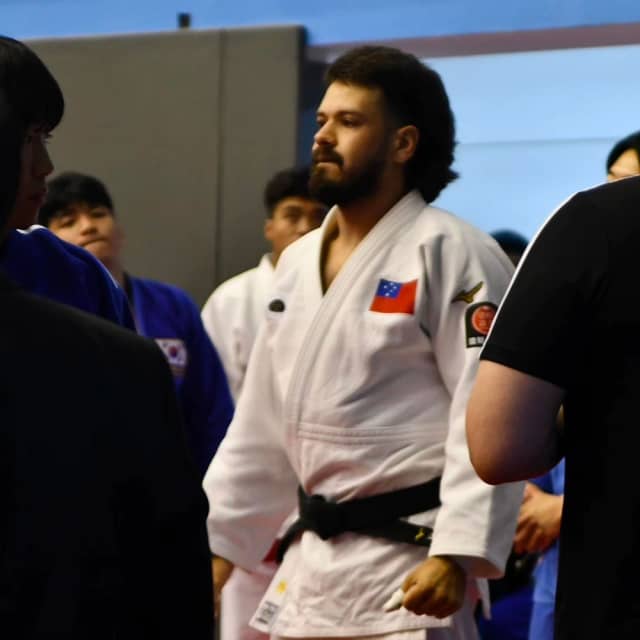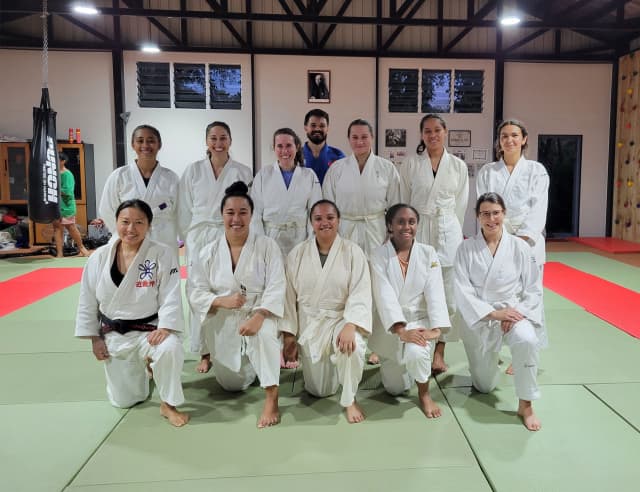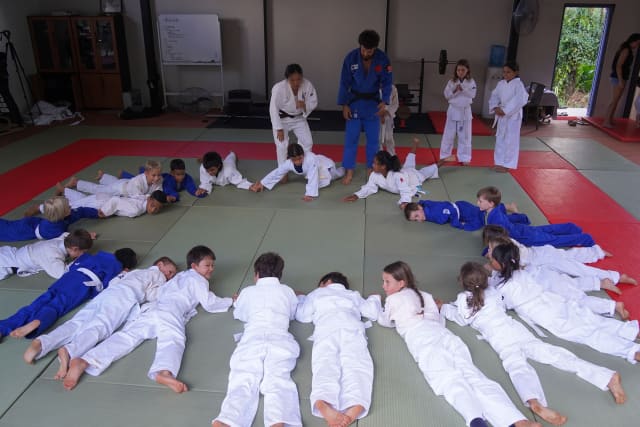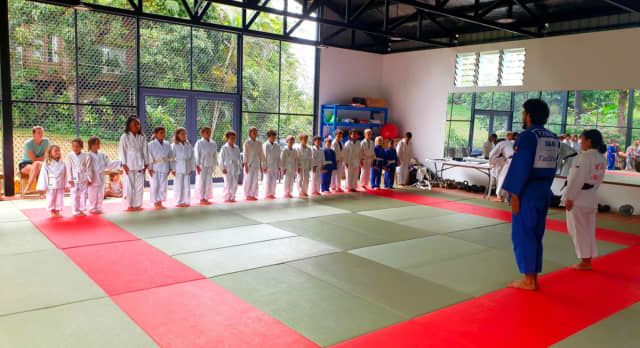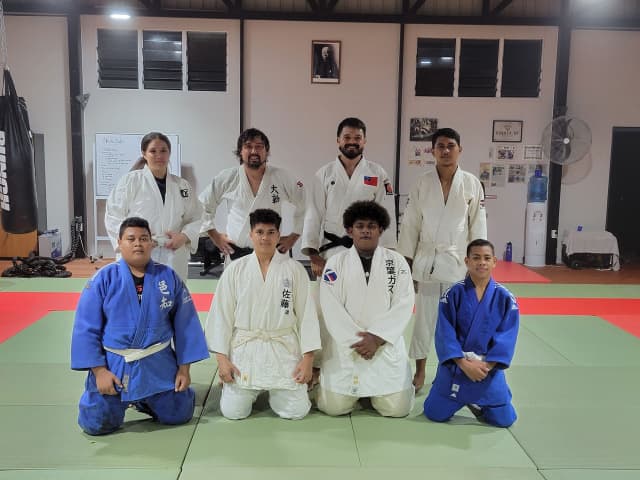Percival’s judo journey began at 13, thanks to a push from his older brother. “He told me to come along to judo. We both loved martial arts, Bruce Lee, Jackie Chan, Jet Li and WWF wrestling. My brother later married Saeko Matsuura, a 2005 Oceania Open World Cup gold medallist from Japan. Her father, a renowned judo teacher, helped develop the sport in New Zealand and inspired me to pursue judo seriously.”
Following a training visit to Japan, Percival studied abroad, earned his black belt and eventually made the bold decision to train and compete internationally for Samoa.
Percival continued his studies in Boston while training at Tohoku Judo Club. Upon graduating in 2018, he returned to Samoa and joined the national team. In 2019, he made his international debut at the Pacific Games, held in Apia, where he claimed two bronze medals, one individually and one in the team event.
“That was the turning point,” he reflects. “After the Pacific Games, I realised I wanted to keep going. I moved to Japan, trained intensely and competed globally with the support of friends, family, crowdfunding and my federation.” This commitment led to the pinnacle of his competitive career, participating in the Tokyo 2020 Olympics.
“I was very close to qualifying for Paris too, just a few points behind my Samoan teammate. We agreed that whoever had more points would go. I was preparing for a final push through a few more competitions when, unfortunately, it didn’t come together.” Despite the setback, his determination hasn’t wavered.
Percival paints a frank picture of judo in Samoa, “It’s not easy. We’re a small country with very limited funding. Most resources go to sports like rugby and weightlifting where we have a better chance at medals but there’s raw talent here and I want to nurture it.” Currently, Percival runs Kalikā Dojo, the only active judo dojo in Samoa. He received support from the NPO JUDOs in Japan, which donated used tatami and several boxes of judogi to help establish and run the dojo.
“We need better management, more competitions and basic equipment like judogi. I’m applying for support from JICA to bring in a volunteer instructor so I can both teach and keep training towards LA 2028.”
As well as the visible training and competition, Percival is using judo to tackle some of Samoa’s social issues. For him, judo is more than sport, it's a tool for social transformation. “As an Olympian and IOC Young Leader, I’ve seen judo instil respect, resilience and self-confidence in young people. That’s critical in Samoa, where we face serious issues like gender-based violence, bullying and various health crises.” The statistics are alarming: nearly 60% of Samoan women report experiencing physical or sexual violence, with intimate partner violence rates among the highest in the world. “At Kalikā Dojo, we create a safe, empowering space, especially for girls. Judo teaches strength, control and purpose. It helps victims heal and prevents future harm by reshaping behaviour through discipline and respect.”
Percival is also using the dojo to promote healthy lifestyles, addressing Samoa’s rising rates of non-communicable diseases, through physical training and nutritional awareness.
Samoa once had a flourishing judo scene, hosting the Oceania Judo Union (OJU) World Cup for four years and even housing the Olympic Training Centre for Pacific nations but the sport has since declined. “We had JICA volunteers, police force training and secondary school competitions. Today I’m working to bring that back. I want to see more dojos and I want to re-engage with our former judoka and inspire a new generation.”
Judo was first introduced in the 1970s by Japanese volunteers. A breakthrough came in 1979 when Samoa sent its first team to the South Pacific Games. In the 1990s, black belt Luatua Seumanutafa Semi Epati revived the sport, forming the Judo Association of Samoa and introducing a Samoan-language judo manual in schools. “We have a proud history. Now it’s time to build a proud future.”
Though his Olympic qualification may have paused, Percival’s mission is clearer than ever. With passion, experience and a black belt in perseverance, he’s fighting not just for medals, but for Samoa’s youth, its wellbeing and the rebirth of a sport that gave him his path in life.

